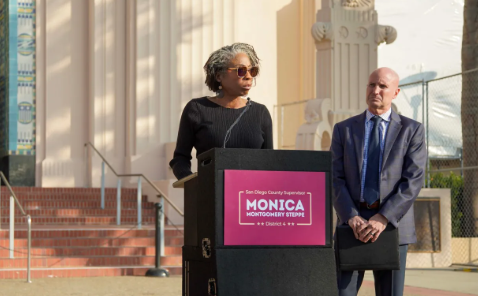San Diego County may soon be the first in the nation to give a civilian oversight board authority over jail healthcare providers — a reform that could change how deaths in custody are investigated.
On Tuesday, the County Board of Supervisors will hold the first reading of a new ordinance that would expand the authority of the Citizens’ Law Enforcement Review Board (CLERB). A final vote is scheduled for September 30. If passed, CLERB would be able to investigate the actions of jail medical and mental health providers whenever an in-custody death occurs.
Until now, CLERB’s oversight has been limited to sheriff’s deputies. The healthcare side of jail operations — where many lawsuits, public records, and family testimonies point to systemic failures — has remained off-limits.
Why This Matters
Between 2006 and 2020, a state audit found 185 deaths in San Diego County jails — one of the highest rates in California. In 2021, the county set a record with 18 jail deaths, followed by 19 deaths in 2022. Even with some recent improvements, eight people have already died in custody this year.
Many of those deaths involved serious lapses in medical care.
- Elisa Serna died in 2019 after being denied proper withdrawal treatment. Her family later won a $15 million settlement.
- Michael Wilson, who had congestive heart failure, wasn’t given his medications in jail. He died in 2019 at just 32. His family was awarded $6 million.
- In the last two years, the county medical examiner has even ruled two deaths as homicides due to neglect — including the case of Keith Bach, who died after being denied insulin in 2023.
Families have long pressed CLERB to investigate these cases fully, but without jurisdiction over healthcare providers, the board’s hands have been tied.
As former CLERB Executive Officer Paul Parker once said:
“If we cannot look at the care provided to people in custody, we really are not getting the full picture.”
Support and Pushback
Supervisor Monica Montgomery Steppe, who introduced the ordinance, says the county has a moral responsibility to act.
“The individuals who have lost their lives are not just statistics. We owe it to their families, their communities and our own collective conscience to ensure that these deaths are investigated thoroughly, transparently and fairly.”
CLERB Chair MaryAnne Pintar has emphasized that the ordinance is narrowly focused — oversight would apply only in cases of in-custody deaths. She says the goal is not to disrupt the healthcare system but to prevent further tragedies.
But the proposal faces stiff resistance from Sheriff Kelly Martinez and the county’s jail healthcare providers. Martinez warned that the oversight could scare off contractors or drive up costs. The union representing jail nurses also worries it could worsen staffing shortages.
What Happens Next
The first reading of the ordinance will take place this week, with a final vote on September 30. If approved, San Diego County would be the first jurisdiction in the U.S. to grant civilian oversight authority over jail healthcare staff — a reform advocates say is long overdue.
For CLERB and for families who’ve lost loved ones, the change could mark a turning point toward greater accountability, transparency, and safety inside San Diego’s jails.


